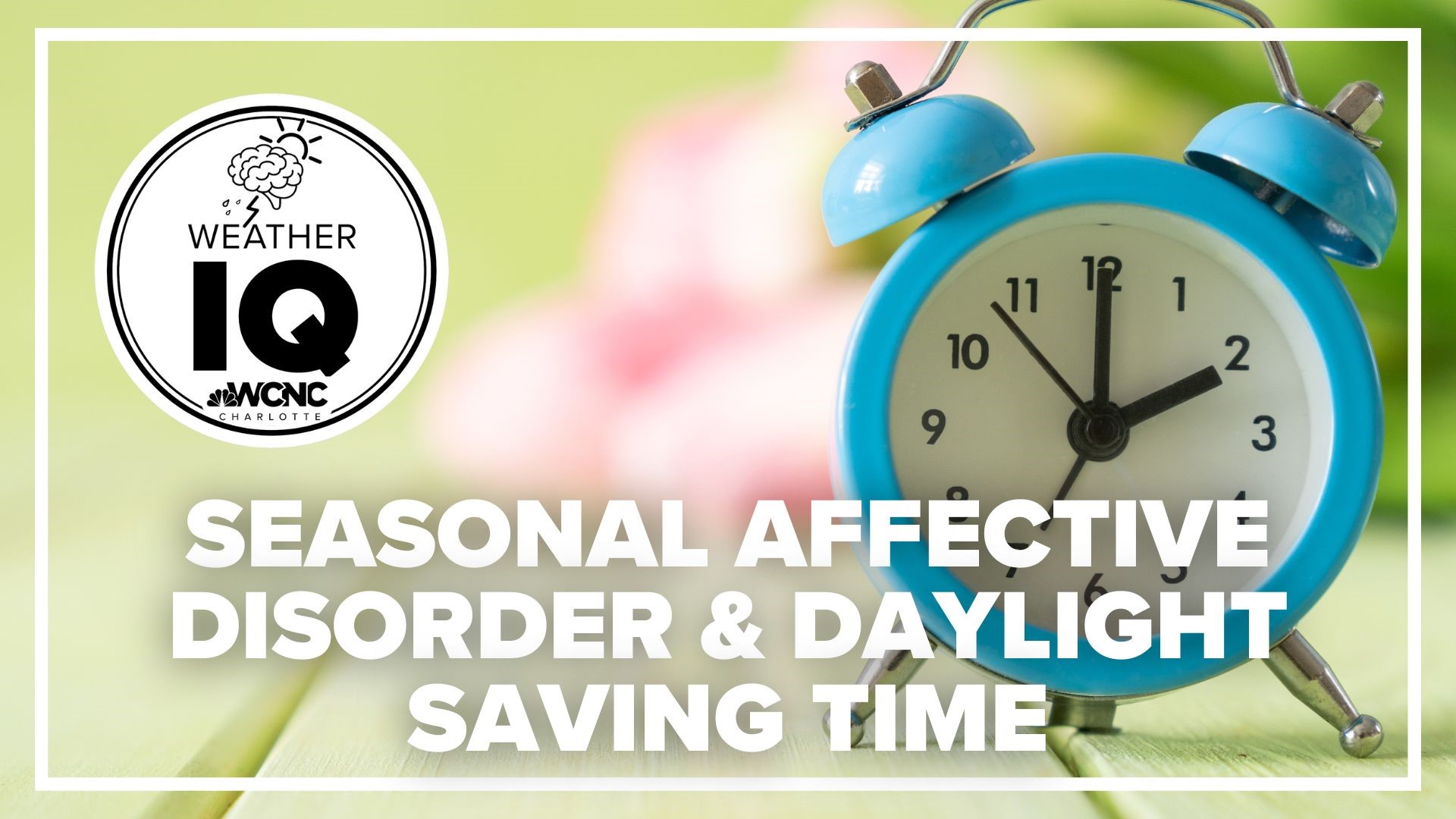CHARLOTTE, N.C. — Ever since Daylight Saving Time hit on Nov. 6, some people's internal clocks may feel a bit out of whack.
The relationship between sunlight and a person's mood is stronger than one could imagine. As the hours of sunlight decrease during the winter months, some may be dealing with more than a case of the winter blues.
Novant Health therapist Jaren Doby said a type of depression called Seasonal Affective Disorder or SAD can creep in when the season changes, too.
“You’ll see changes in energy or fatigue," Doby said. "You’ll see insomnia or even hyper-insomnia, over-eating, changes in mood -- which is low pressure, low interest in doing things -- changes in appetite, inappropriate guilt or decreased concentration."
Those changes are most often felt when the time change happens.
Between Summer Solstice in June and Winter Solstice in December, the amount of daylight decreases by nearly five hours. It occurs as Earth tilts away from the sun and reduces the sun’s angle.


There are some tips to stave off SAD, however, like making plans with others, planning a self-care date and don't be sedentary.
Doby said there are ways to cope with fewer daylight hours:
Make the daylight hours count
Embrace winter events
Be active and exercise
Socialize with friends & family
Add a new hobby to your routine
If you or a loved one are facing thoughts of suicide or self-harm, there is help readily available. You can call Suicide and Crisis Lifeline at 988 or chat with them online. There are also resources in North Carolina available here and in South Carolina available here.

